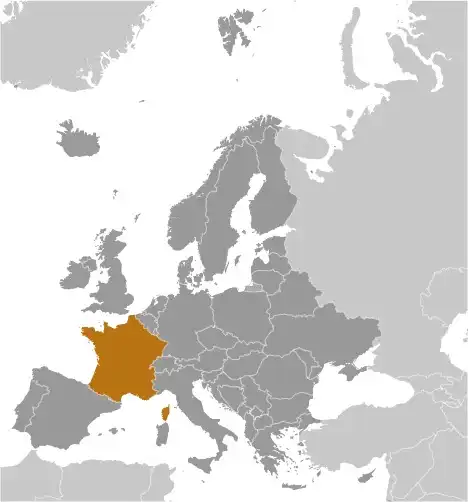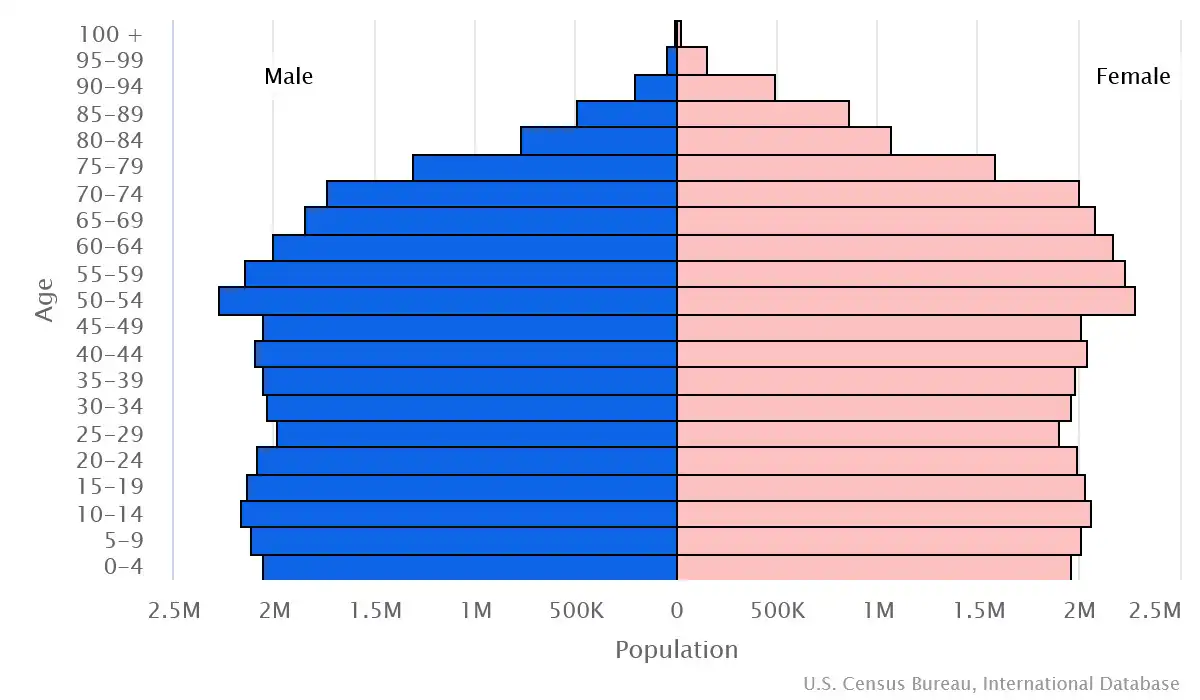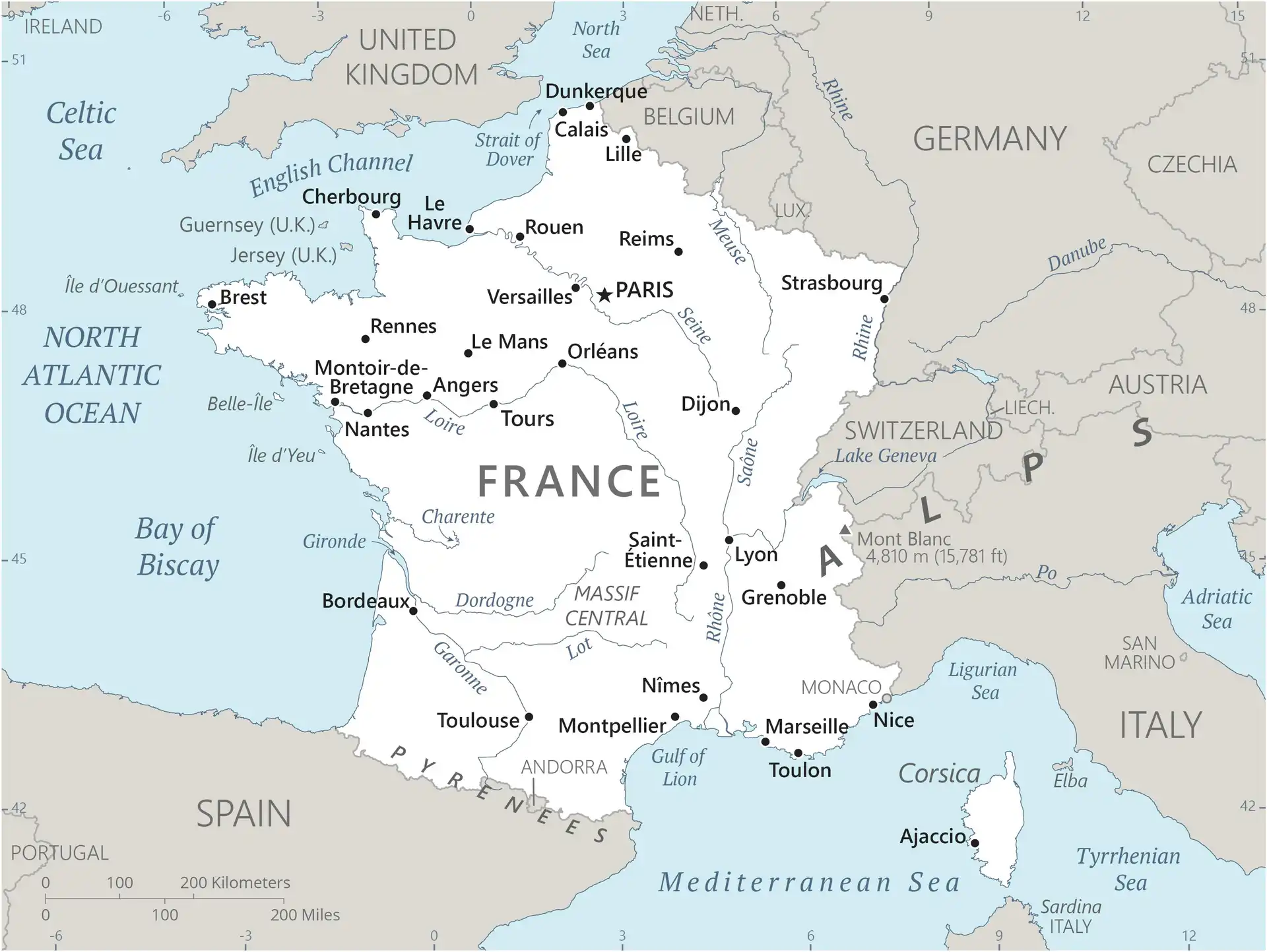
France Country Profile
Key Facts of France

| Government type: | semi-presidential republic |
| Capital: | Paris |
| Languages: | French (official) 100%, declining regional dialects and languages (Provencal, Breton, Alsatian, Corsican, Catalan, Basque, Flemish, Occitan, Picard) |
France Demographic Data
Ethnic Groups in France(Algerian, Moroccan, Tunisian)
Religious Groups in France (2021 est.)
Age pyramid of France

France Economy Statistics
Economic overview of France
high-income, advanced EU economy and eurozone member; strong tourism, aircraft manufacturing, pharmaceuticals, and industrial sectors; high public debt; ongoing pension reform efforts; transitioning to a green economy via "France 2030" strategy
France Real GDP (purchasing power parity) in Billion $
France Real GDP per capita in $
France's Exports & Imports in trillion $
Top 5 Import Partnerin 2022 (48%) of France
Top 5 Import Commodities in 2022 of France
- natural gas 💨
- cars 🚗
- refined petroleum ⛽
- crude petroleum 🛢️
- garments 👕
Top 5 Export Partnerin 2022 (46%) of France
Top 5 Export Commodities in 2022 of France
- aircraft ✈️
- packaged medicine 💊
- cars 🚗
- natural gas 💨
- vehicle parts/accessories 🛠️🚗
Geography of France
Map of France

Land and Water Distrubtion of France
Natural Resources of France
- metropolitan France: coal ⚫
- iron ore ⛓️
- bauxite 🪨
- zinc 🔩
- uranium ☢️
- antimony 🏺
- arsenic ☠️
- potash 🪙
- feldspar 🪨
- fluorspar 💎
- gypsum ⚪🪨
- timber 🌲
- arable land 🌱
- fish; French Guiana: gold deposits 💰
- petroleum 🛢️
- kaolin 🪨
- niobium 🟦
- tantalum 🪙
- clay 🧱
Climate inFrance
metropolitan France: generally cool winters and mild summers, but mild winters and hot summers along the Mediterranean; occasional strong, cold, dry, north-to-northwesterly wind known as the mistral
History of France - a Summary
France today is one of the most modern countries in the world and is a leader among European nations. It plays an influential global role as a permanent member of the United Nations Security Council, NATO, the G-7, the G-20, the EU, and other multilateral organizations. France rejoined NATO's integrated military command structure in 2009, reversing then President Charles DE GAULLE's 1966 decision to withdraw French forces from NATO. Since 1958, it has constructed a hybrid presidential-parliamentary governing system resistant to the instabilities experienced in earlier, more purely parliamentary administrations. In recent decades, its reconciliation and cooperation with Germany have proved central to the economic integration of Europe, including the introduction of a common currency, the euro, in January 1999. In the early 21st century, five French overseas entities -- French Guiana, Guadeloupe, Martinique, Mayotte, and Reunion -- became French regions and were made part of France proper.
